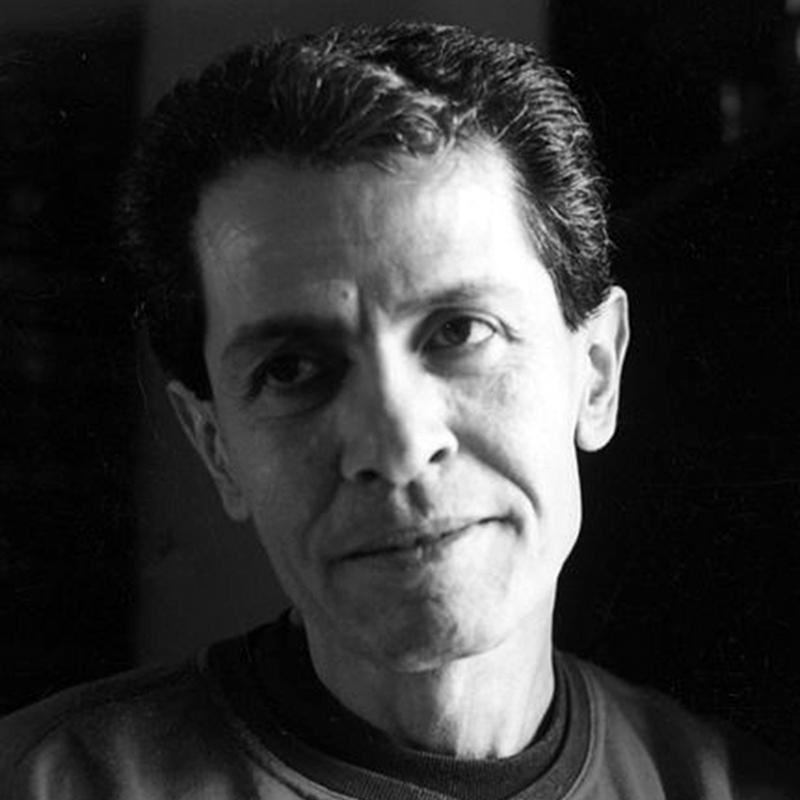Sa'dallah Wannous, famed Syrian playwright, was chosen to deliver the keynote speech celebrating the International Day of Theater. His speech was distributed and read in all world theaters on March 7, 1996. Wannous chose as his theme the "Hunger for Dialogue," a discussion he feels "starts on theater, then roams vastly, growing until it encompasses the world in all its different peoples and diverse cultures."
Wannous believes "theater will remain the ideal forum in which man ponders his existential and historical condition. The characteristic that makes theater a place unparalleled is that the audience breaks out of their wilderness in order to examine the human condition in a collective context. Theater awakens their belonging to the group, teaching them the richness of dialogue and the multiplicity of its levels. There is first a dialogue that takes place on stage, second, an implicit dialogue, and a third, a dialogue among members of the audience themselves." This dialogue grows to encompass the community in which the performance takes place. As a result, "we feel free from the pain of our loneliness and become increasingly sensitive and conscious of our communality. Theater is therefore not only one of many manifestations of civil society, but rather one of the many conditions of this society, one of the many necessities that sustains its establishment, its growth, and its prosperity."
After claiming this essential social role for theater, Wannous went on to lament the current theatrical decline: "Wherever I look, I see cities losing theaters, forced to isolate themselves into dark and neglected margins, at a time when we are witnessing the creation of a growing night life, colored screens, and packaged trivialities. I am aware of no other period in which theater was in such dire economic and moral need. The funds used to nourish it are declining year after year, and the attention by which it was once surrounded has been changed to negligence equivalent to disdain, although often this negligence is cloaked in hypocrisy. The crisis of theater, regardless of its particularity, is part of a crisis that encompasses culture in general. We need not prove that a crisis of culture exists, and that culture is suffering from almost methodical marginalization and siege."
Wannous went on to remark upon the irony that this marginalization is occurring at a time when both wealth and technology are exploding the possibilities of human communication. He seems to suggest that while mankind is truly building a global village, it is a village in danger of being without a theater. Indeed, this globalization "has become almost the fundamental opposite of the utopia preached by the philosophers, and which nourished man’s visions throughout centuries. This globalization increases inequality in resource distribution, deepens the gap between the very rich countries on one hand, and the hungry and poor peoples on the other. It also mercilessly destroys all forms of solidarity among groups, tearing them off into individuals weakened by loneliness and depression. Since there is no vision of the future, and because the people for the first time in history stopped daring to dream, the human conditions in the end of this century look dark and depressing."
It is in just such critical conditions, according to Wannous, that "culture emerges to form the main front to confront this selfish globalization, a process that is void from any humanistic dimension. Culture is the medium which could develop critical positions, expose what goes on, reveal its components. Culture is the one force which could aid man to regain his humanity, and proposes ideas and examples that make him more inquisitive, consciously and aesthetically. Under these circumstances, theater has a fundamental role in accomplishing critical and creative tasks which are tackled by culture. Theater will train us, through participation and example, on healing divisions afflicting groups, and it is theater which will revive the dialogue which we all lack."
Wannous put a personal face on the issues he discussed when he referred to his own four year battle against cancer, saying "writing, and for the theater in particular, was the most important means in my battle." He spoke of his anger and surprise when asked why he went on writing in the face of the decline of the theater, saying that to stop writing for the theater, especially at this time in his life, would constitute "a denial and treason" that his "spirit cannot bear," and which might actually hasten the end of his life. He went on to say, "I insist on writing for theater, because I want to defend it, and exert my efforts so this art remains alive... Theater is in fact more than just art; it is a complex cultural phenomenon; were the world to either lose it or lack it, it would become lonelier, uglier and poorer."
Calling for a defense of culture and a restoration of theater "to the spotlight," Wannous closed his remarks with an utterance both sad and profoundly optimistic: "We are doomed by hope, and what takes place today cannot be the end of history."
Translated and edited by Elie Chalala.
This article appeared in Al Jadid Magazine, Vol. 2, No. 8, June 1996 and was reprinted in Al Jadid Magazine, Vol. 3, No. 18, May 1997.
Copyright © 2022 AL JADID MAGAZINE

